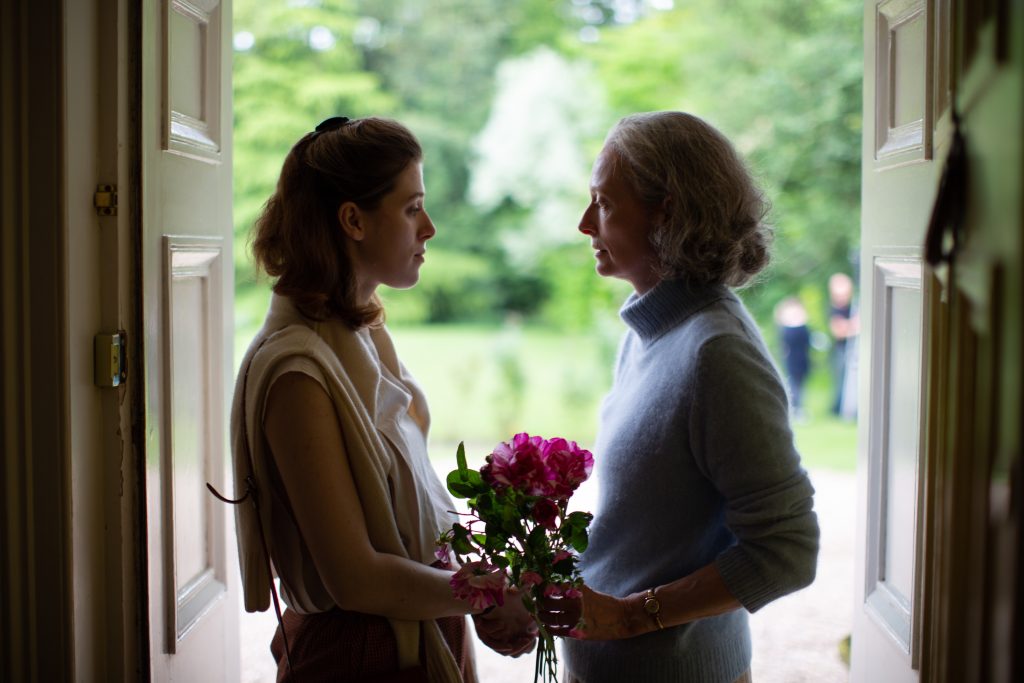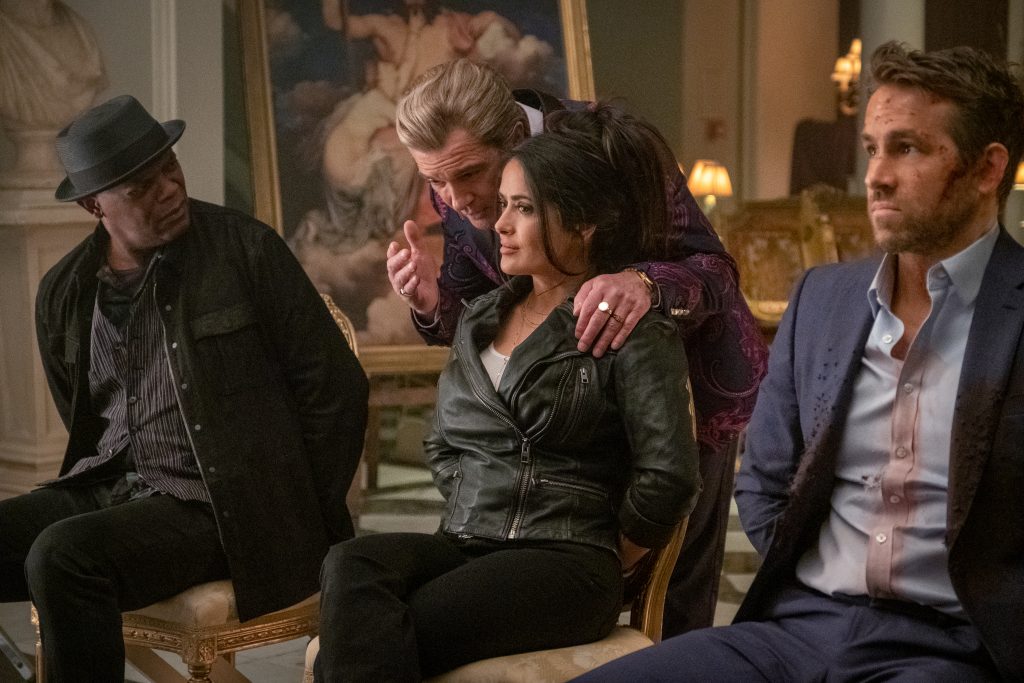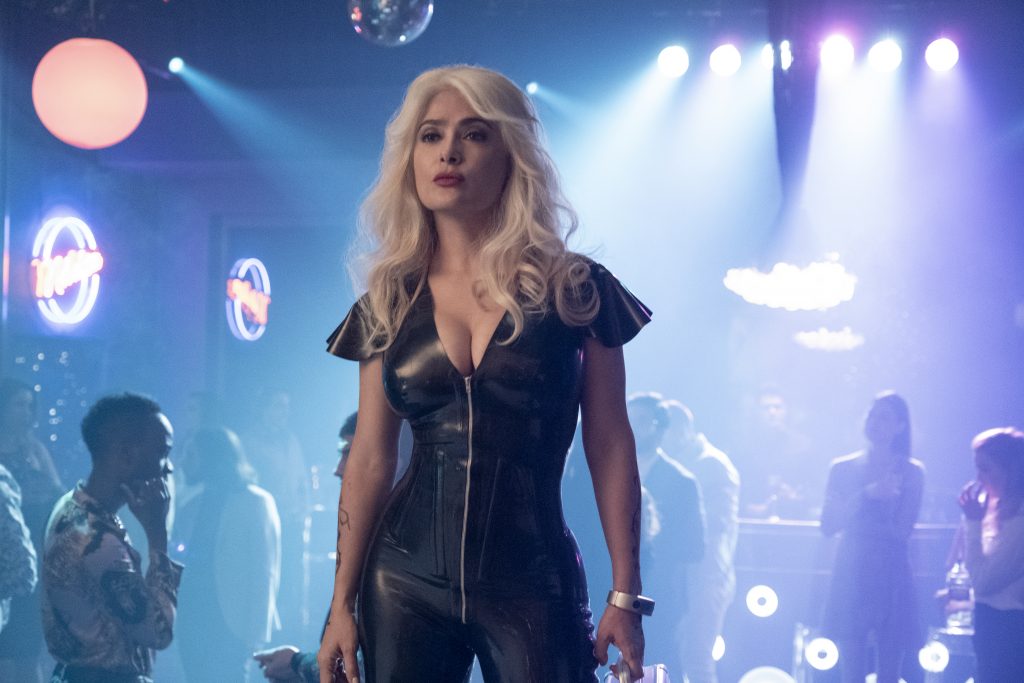November 2, 2021
by Carla Hay

Directed by Joanna Hogg
Culture Representation: Taking place in the mid-1980s in England (primarily in London and briefly in Norfolk), the dramatic film “The Souvenir Part II” features a predominantly white cast of characters (with a few black people) representing the middle-class and wealthy.
Culture Clash: In this sequel to “The Souvenir,” a film student struggles with completing her first short film while trying to mend her broken heart after a relationship with a former boyfriend ended badly in “The Souvenir.”
Culture Audience: “The Souvenir Part II” will appeal primarily to people who are fans of filmmaker Joanna Hogg and arthouse British coming-of-age films that have keen observations and dry wit.

If filmmaker Joanna Hogg’s semi-autobiographical “The Souvenir” depicted a dark storm in her life, then “The Souvenir Part II” is like the sun peeking more optimistically through the clouds. It’s a rare sequel that’s better than the original movie. “The Souvenir” (released in 2019) was a dour and depressing story of a young film student caught up in a toxic relationship with a heroin-addicted older man. “The Souvenir Part II” shows with imaginative charm how the young protagonist picks up the pieces of her broken heart and finds her identity as a beginner filmmaker.
British filmmaker Hogg wrote and directed both movies with a combination of a sharply objective viewpoint and an intimate subjective perspective. That hard-to-achieve mix makes “The Souvenir Part II” a universally relatable tale for anyone who decides to pursue a passion, and yet it’s a deeply personal reminsicence of a specific era and place for Hogg. “The Souvenir Part II” picks up not long after “The Souvenir” ended. “The Souvenir” was about depression and degradation, while “The Souvenir” is about recovery from this type of damage and emerging stronger than before.
In “The Souvenir Part II,” it’s still the mid-1980s, and film student Julie Harte (played by Honor Swinton Byrne) is trying to recover from the destructive romance that she had with a heroin addict named Anthony (played by Tom Burke), a charismatic, intelligent but ultimately disturbed con artist/thief from a vaguely privileged background. The end of “The Souvenir” showed how Julie and Anthony’s relationship was destroyed to the point of no return. It was an exhausting relationship in which Anthony (who was about 10 years older than Julie) used her, emotionally manipulated her, betrayed her, and ultimately broke her heart.
But it was also the first time that Julie fell deeply in love. And she’s still trying to get over Anthony. In the meantime, Julie has been focusing on her school studies. She attends the fictional Raynham Film and Television School in London. As a requirement for her upcoming graduation, she has to complete a short film that she’s writing and directing. Julie is also getting “real world” experience as a part-time production assistant on a film set.
Julie comes from a well-to-do family. Her mother Rosalind Harte (played by Tilda Swinton, who is Swinton Byrne’s real life-mother) supports Julie in her quest to become a filmmaker. Julie’s father William Harte (played by James Spencer Ashworth) is much more skeptical of Julie’s filmmaker goals. Swinton and Ashworth were also in “The Souvenir” as Julie’s parents. In “The Souvenir Part II,” Julie still seeks their approval and needs their financial support, but she has become more independent and determined not to let naysayers distract her from her artistic vision and her ambition.
When Julie visits her parents at their home in Norfolk, England, she gripes to them about getting criticism from a film instructor, who thinks that Julie’s student film thesis is too unfocused. William gives this unsympathetic response: “Sounds typical for art school.” In the same conversation, William asks Julie if she would consider working on the family farm instead of pursuing what he thinks is a foolish dream of becoming a filmmaker. Based on these family dynamics, it should come as no surprise that Julie asks her mother, not her father, for the money that Julie needs to finish her student film.
Julie’s part-time production assistant job is essentially an internship. She’s doing PA work for a lavish period musical about young people in their 20s. The movie’s leading man is Jim (played by Charlie Heaton), a roguish actor who suggestively gives Julie the eye when they’re working on the film set. The movie’s director is egotistical and demanding Patrick (played by Richard Ayoade, in a hilarious, scene-stealing performance), who reprises his role as Julie’s friend from “The Souvenir.”
It’s Patrick who suggests to Julie that she make her student film a tribute to Anthony to help her through her grieving process. (Mild spoiler alert: Anthony died of a heroin overdose at the end of “The Souvenir.” Anthony’s death is mentioned in “The Souvenir Part II” trailer, so it’s not really spoiler information.) Julie takes Patrick’s advice and ends up doing a very artsy/avant-garde movie version of her relationship with Anthony. The title of Julie’s movie is revealed toward the end of “The Souvenir Part II.” (The title is exactly what you might think it is.)
In “The Souvenir Part II,” Julie has a group of peers (some film students, some not) whom she bounces ideas off of for her student film, even if they give her advice that she doesn’t think is compatible with what she has in mind. What they all have in common is a passion for movies. These supporting characters include Jaygann Ayeh as Marland; Alice McMillan as Elisa; Harris Dickinson as Pete (who plays the Anthony-inspired character in Julie’s film); and Joe Alwyn as the unnamed editor of Julie’s film.
It’s not much of a surprise when Jim shows up unannounced at Julie’s door one day. She lets him in, and they hook up. But in an effort to make this movie very much from a female perpsective, viewers find out more than maybe some people might want to know about Julie’s menstrual cycle. In an early scene in “The Souvenir Part II,” Julie announces that her menstrual period is late. When she and Jim have their sexual tryst, let’s just say that her time of the month arrives, and he doesn’t mind it one bit.
Jim is just a fling because Julie (even though she doesn’t really want to admit it to a lot of people) is still somewhat in love with Anthony. There’s a very realistic scene of her secretly meeting with someone from Anthony’s druggie past in order to try and get some answers on what kind of life he was leading when he would disappear on his drug binges. This “investigation” is a big sign that Julie is having a difficult time moving on from Anthony.
In the production notes for “The Souvenir Part II,” Hogg says that she wanted the movie to be about Julie’s expressions of the five stages of grief. (These five stages are denial, anger, bargaining, depression and acceptance.) In “The Souvenir,” Julia’s life, energy and spirit revolved around Anthony. In “The Souvenir Part II,” she experiences the five stages of grief. The end result is that her life, energy and spirit begin to blossom into who she is as an artist and as a person.
It’s not an easy journey, because there are pitfalls (some self-made, others created by other people) along the way. However, Julie’s emotional scars end up becoming her armor when things get tough for her. Swinton Byrne gives a thoroughly believable and captivating performance as Julie, while Hogg’s attention to 1980s-era details manages to feel both retro and timeless.
Truth be told, “The Souvenir” is a movie that’s a little too enamored with its own mopiness, just like a pouty teenager who thinks it’s uncool to smile. “The Souvenir Part II” is a triumphant “coming into adulthood” film that finds a more emotionally mature Julie finally understanding that happiness isn’t always guaranteed in life, but that doesn’t mean you can’t find joy in discovering who you are and not be afraid to show it.
A24 released “The Souvenir Part II” in select U.S. cinemas on October 29, 2021. Picturehouse will release “The Souvenir Part II” in U.K. cinemas on January 21, 2022.


